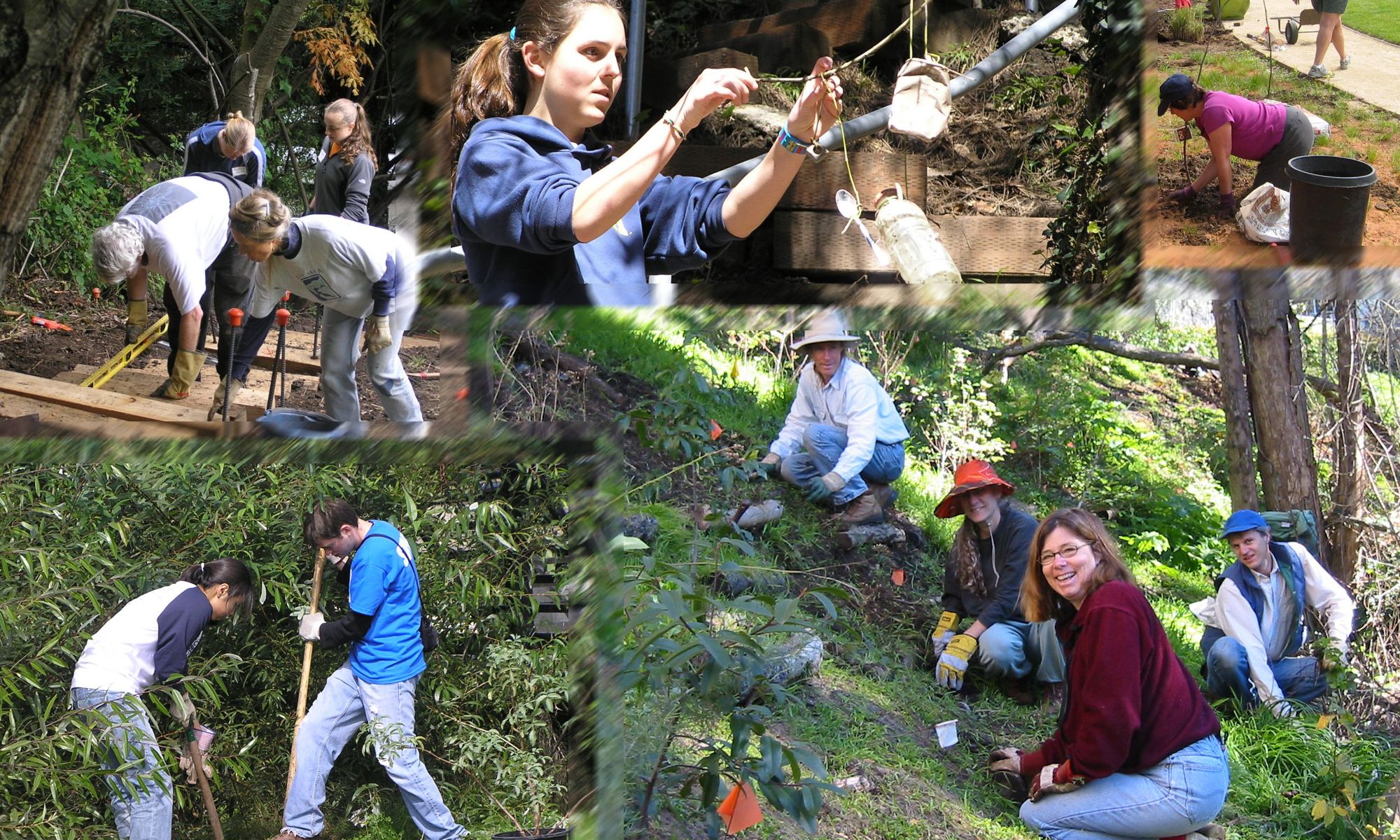Getting Positive Projects Done
- Cast your net widely in seeking help — around the neighborhood and your community of friends and affiliates. You never know where help will come from, and you’ll need a diversity of talent to complete a project.
- Don’t be bashful about asking others to assist. Enlisting is often the best way to “find” volunteers.
- Prioritize both the projects you take on and the steps you take in each one, based on what’s most broadly supported, most needed, and doable.
- Perfection is the enemy of Done. A good plan today is often better than a perfect plan tomorrow.
- Just get started. Do something small that shows you’re on the way. It will be much easier to attract support with each step you take.
- When a project takes years to realize, have real milestones enroute – plant something, install something — to keep folks from losing heart or interest.
- Have two projects – one long term and uncertain, and one short term and likely to succeed. That way, you keep going, and at least some of the hard things get done.
- Be prepared for process. To paraphrase Woody Allen, sometimes nine-tenths of success is just showing up at meetings. Sometimes, the one who attends the most meetings wins.
- Things will get much easier as you develop a broad network of contacts, partners, and a track record. A good way to do this is by helping others with related efforts.
- Always be nice to government officials or staff. They’ll be grateful, because they get dumped on so often. And thank everyone for everything. People remember how you make them feel.
- Who is already working in the area? What can you learn from them? Is part or all of your project in their plans? Can you help or partner? Think about territoriality – yours and theirs.
- Reach out to the neighboring community and keep people informed about your plans from the beginning. People have less tendency to get polarized if they have information and feel that you’re taking their concerns, hopes, and fears seriously.
- Most conflicts are between “good” causes. Be prepared to incorporate others’ goals, broaden your ideas and purpose, compromise, and pick your way through more regulations and requirements than you dreamed.
- Expect things to take much more time and effort than you expect.
- Be realistic about the future. Ask yourself: What is success? When you move on, what will be needed to keep it going? How will the project be maintained?
